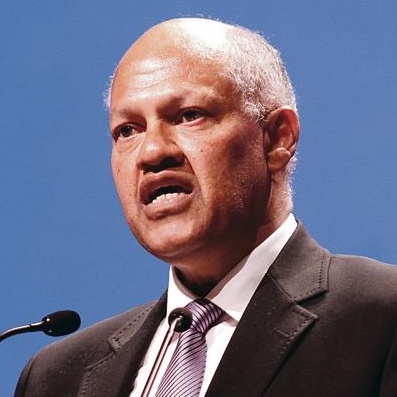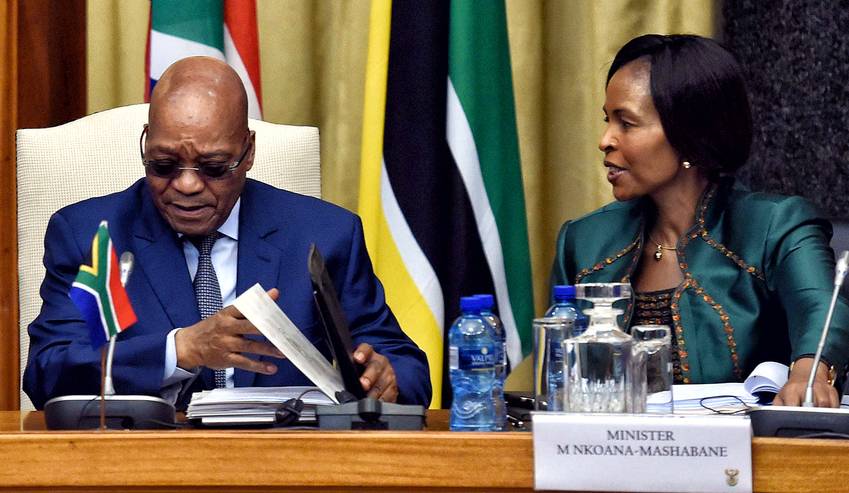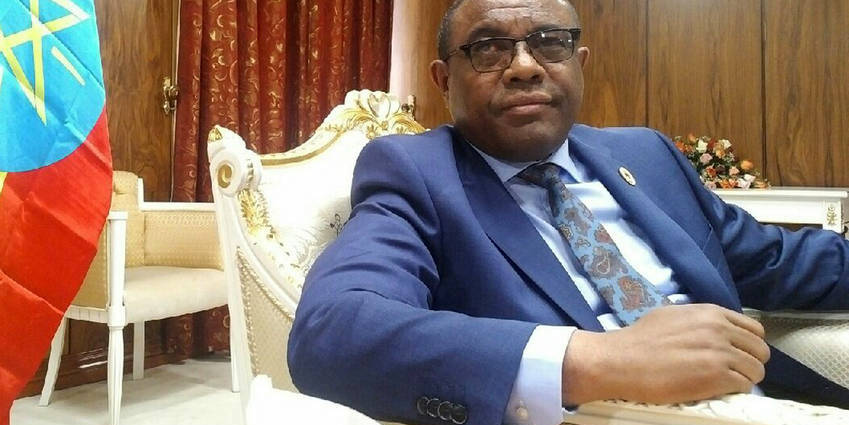News
South Africa's Foreign Policy after Zuma
In all of this, there is an imperative to put people first.

Former MP, Parliament of South Africa

Former Director, The Brenthurst Foundation

As President Cyril Ramaphosa seeks to undo the corrosion of the Zuma’s years on South Africa’s image and growth and investment prospects, he will need to refocus South African foreign policy and systems on the things that matter most. WILMOT JAMES and GREG MILLS earlier considered just how this might be done.
Back in the 1990s, South African embassies abroad were among the first ports of call for any researcher worth their salt. Generally full of insight, promise and knowledge, they offered a shortcut to understanding the local scene, overwhelmingly staffed with professionals whose common thread was commitment to the values and aspirations of the new South Africa, bringing a wealth of experience both from the old order and the diplomacy of the liberation movements.
Today, however, such venues are usually spots to avoid, occasional dumping grounds for party hacks, disgraced politicians and serial cookie jarists, there to give the remaining pros a bad name. Indeed, the value of South Africa’s diplomatic spots abroad can be determined by the answer to a single question: If these missions disappeared, would it markedly affect national prosperity?
The reasons why our achievements have been so feeble, and our failures from the Central African Republic to Zimbabwe so dramatic, are complex, but it can be distilled in foreign affairs, as it can be for most other portfolios of government, to the fact that the ANC conflates the interests of the party with that of the nation. The ANC has defined itself as a liberation movement entitled to govern in perpetuity rather than a political party competing in a democracy. It has chosen instead to follow power rather than moral purpose, blurring boundaries between family, political and party interests on the one hand and public obligations on the other.
Despite a threefold increase in numbers of civil servants, this travesty has hollowed out the state and cannibalised the civil service with ANC cadres. South Africa’s foreign policy serves little national purpose, pivoting more towards the interests of certain factions in the ANC and the clique, in and out of government, that surrounds President Zuma. Our democratic credentials and values, South Africa’s most notable global “brand”, have been undermined by cavorting with autocrats to no clear national advantage. The ANC’s National General Council 2015 foreign policy discussion document is in this regard a clear statement of the party’s antediluvian, Manichean world view.
To advance South Africa’s national interest, there is a need for a change of course in foreign policy and the tools that go with it. To excel, the state has to learn to use and integrate state, business and civil society resources to develop better diplomatic tools.
Just as wars cannot be solely waged by the military and trade cannot solely be pursued by businesspeople, diplomats require integrating the appropriate tools of foreign policy across government. A plan to better serve the national interest abroad can be achieved if we do the following:
Focus our Missions
There is little point in having 140 missions abroad and 2,500 staff gobbling an annual budget of over R5-billion if the investment fails to advance South Africa’s strategic thrusts. We recommend four categories of diplomatic missions:
“Core Partners” numbering 25 (made up of those in the SADC region, and elsewhere where South Africa enjoys priority political or trade and investment ties);
50 “Tier Countries” (where micromissions or Non Resident Ambassadors – NRAs – can operate);
The remaining “Friendship Nations” (where NRAs operate); and,
Include multilateral memberships. South Africa will maintain no more than 75 staffed foreign missions, and would aim to reduce its overseas diplomatic staff to no more than 500.
Create a Non-Resident Ambassadorial (NRA) Corps
Following Singapore, South Africa should create a new NRA corps of 100 visiting Ambassadors, drawn from retired diplomats and retired top civil servants, leading business people, community leaders and retired politicians. These NRAs would cover one or a maximum of two countries. These would be unpaid posts, though all costs would be met when NRAs travel to the country of appointment, usually twice a year. There would not generally be any resident embassy staff, except if it were a step towards posting a resident ambassador.
Invest in the promise of the African Union
South Africa should invest in the AU’s stand-by brigades and the logistics that are required to see these from being a paper promise to a practical reality. This requires working out what African countries need and seek the appropriate support from partners. The confusing double standard and dual practice that has some African nations working with key enablers such as the USA, France and Britain while others refuse to do so must be brought to an end.
Climb the Heights of Global Governance
South Africans must be committed to ensuring its top citizens are positioned within multilateral bodies. Equally, there must be commitment to the restructuring of the United Nations, recognising however that reform requires consensus between both the current Permanent 5 as well as aspirant, new permanent members.
Support and Consolidate Democratic Processes
South Africa’s most powerful brand is forging democratic practice. We should be the champions of such practice and human rights compliance by calling problems and violations where they exist, not ignore or keep silent about them, as it happens with the BRICS. This demands reaffirming our commitment to the ICC, not leading Africa’s resignation from this body, set up as it was to protect citizens from the impunity of leadership. We should strengthen election observer missions and refuse to participate unless we are able to be in the host country at least for one month prior to the election. Reports should be publicly released immediately and members selected for the courage of their convictions. Two new institutions should be created:

- A National Democratic Institute (NDI): Funded by government, but where the political parties in Parliament nominate staff on a pro rata basis. This way an NDI can be representative of the society it is representing and the democratic interests it is promoting; and
- A Fragile State and Peace-Building Unit: Given that 23 of the 28 fragile states worldwide are in Africa, this is a continental imperative. The CAR episode illustrates that this is a practical necessity. Staff should be recruited from within Africa and farther afield, both from a variety of government (military, diplomatic, developmental) and non-governmental sectors.
Join this up in Government
The 2013 CAR episode is a costly reminder of the chronic failure of intelligence. Rather than establishing government clusters as a bureaucratic formality, as the ANC has done, there is a need to instil the practice of liaison and accountability as a reflex action within and between government departments. Visa policies must be integrated with our national interests of economic prosperity, reliant as it is on the inward flow of skills, technology and capital. The South African National Defence Force (SANDF) should be equipped for national defence and peacekeeping duties.
Develop a Health Security and Diplomacy Strategy
The Ebola crisis is a reminder that health is a critical aspect of security and, like trade, of growing importance in diplomacy, military and intelligence co-operation. Embassies today require trained health attaches who must know the health burdens of the regions in which they operate.
Energise and Focus the SA Development Partnership Agency on Africa
While security and peace have a development dividend, job creation programmes by way of establishing improved business conditions are central to African security, including in South Africa. The African Renaissance Fund should be devoted towards such a purpose.
Consolidate the African Development Bank
The AfDB is the premier continental development institution. This reality should be a priority, not the establishment of potentially conflicting development banks within the BRICS. South Africa needs to make one thing work, and work properly.
Invest in Economic Growth and Trade
In South Africa and elsewhere, punting domestic companies and their products and our country’s considerable tourist virtues abroad is a priority national interest issue because it creates jobs, boosts revenues and generates prosperity. There is a need to aggressively seek to forge bilateral trade agreements. South Africa should aim to increase the number of Free Trade Agreements (FTAs). After Brexit, the UK is an immediate priority.
In all of this, there is an imperative to put people first. To ensure that the rest of the world sees a great country, the interests of South Africans – not just one political party – must be the overall objective of foreign policy, geared to seeking to provide prosperity, security and peace for all. And in so doing, the interests centre not only in material advancement but also in the democratic principles and solidarity that were once applied in making post-apartheid South Africa a reality.
This article was originally published in The Daily Maverick.

